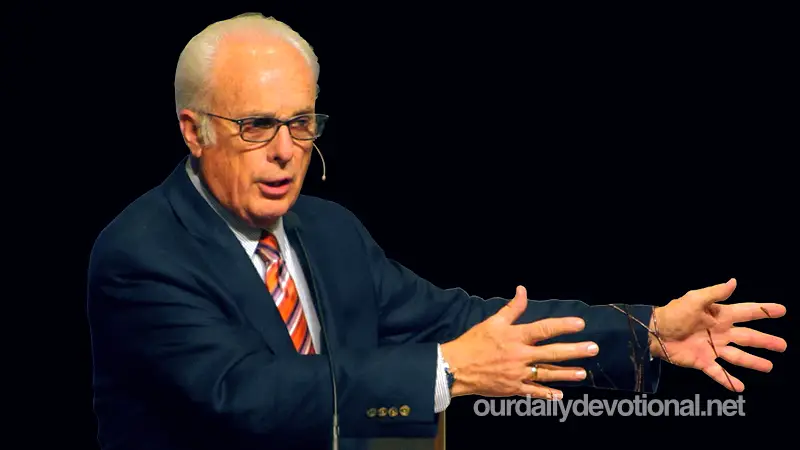Important city in the Jordan Valley (Deut. 34:1, 3), on the west bank of the river, about 8 km from the northern coast of the Dead Sea, and approximately 27 km from Jerusalem.
Jericho is located at the bottom of the slope that leads to the mountainous plateau of Judah. The city was known as the city of palm trees (Deut. 34:3; Judges 3:13); The first mention in Scripture is given in relation to the Israelite camp at Shittim (Num. 22:1; 26:3).
The location of Jericho, a highly fortified city, gave it control of the lower Jordan and the passes that led to the western mountains; The only way the Israelites could advance into Canaan was to take the city.
Joshua sent two spies to spy out the city (Joshua 2:1-24), the people miraculously crossed the Jordan on dry land, and pitched their tents in front of the city. By order of God, the men of war circled the city, once a day, for six consecutive days.
In the middle of the soldiers, the priests carried the ark of the covenant, preceded by seven priests blowing trumpets. On the seventh day they circled the city seven times; At the end of the seventh round, as the long blast of the trumpets sounded, the army broke into a loud clamor, the walls collapsed, and the Israelites entered the city.
As for the date, it would be around the year 1403 BC. (cf. EXODUS AND PILGRIMAGE THROUGH THE DESERT).
The city had been proclaimed anathema. Except for Rahab, who had given refuge to the spies, and his family, all the other inhabitants were killed. The gold, the silver, the precious objects, entered the treasury of Jehovah. Joshua placed a curse on anyone who rebuilt the city (Josh. 5:13-6:26).
It was assigned to Benjamin; It was located on the borders of Benjamin and Ephraim (Josh. 16:1, 7; 18:12, 21).
Eglon, king of Moab, made it his residence at the time when he oppressed the Israelites (Judg. 3:13).
In the reign of Ahab, Hiel of Bethel fortified the city; In the course of this fortification he lost, or sacrificed, his two sons, in fulfillment of Joshua's curse (1 Kings 16:34).
During Elisha's ministry there was a community of prophets in Jericho (2 Kings 2:5).
Elijah, on his way to be caught up to heaven, passed through Jericho with Elisha (2 Kings 2:4, 15, 18).
In Jericho the men of Judah who had been taken prisoner by the army of Pekah, king of Israel, were released (2 Chron. 28:15).
The Chaldeans seized Zedekiah near Jericho (2 Kings 25:5 Jer. 39:5 52:8).
After the return from exile, some of its inhabitants helped build the walls of Jerusalem (Neh. 3:2).
Bacchides, a Syrian general, built the walls of Jericho in the time of the Maccabees (1 Maccabees 9:50).
At the beginning of Herod's reign the Romans sacked Jericho (Ant. 14:15, 3).
Herod then beautified it by building a palace and, on the hill behind the city, built a citadel which he called Cypro (Ant. 16:5, 2; 17:13, 1; Wars 121, 4, 9).
The parable of the Good Samaritan is set on the road from Jerusalem to Jericho (Lk. 10:30).
The healing of blind Bartimaeus and his companion took place on the road to Jericho (Mt. 20:29; Luke 18:35);
Zacchaeus, whom Jesus called to stay in his house and give him salvation, lived in Jericho (Lk. 19: 1, 2).
Jericho is almost 240 m away. below the level of the Mediterranean Sea, in a tropical climate, where balsam trees, henna, and sycamores grew (Song. 1:14; Luke 19:2, 4; Wars 4:8, 3).
The roses of Jericho were considered extraordinarily beautiful (Sir. 24:14).
Ancient Jericho rose very close to the abundant waters called today 'Ain es-Sultãn; this is undoubtedly the fountain that Elisha healed (2 Kings 2:12-22; Wars 4:8, 3).
Modern Jericho, in Arabic "Er-Riha", is located 1.5 km southeast of the fountain.
Archeology:
Ernst Selin and the Deutsche Orientgesellschaft company (1907-1909) began excavations there on the mound called Tell es-Sultan. They were continued very extensively by John Garstang (1930-1936); in 1952 they were resumed by Kathleen Kenyon and by the archeology schools of England and the USA.
It was Garstang who discovered the evidence of the fallen walls, and this evidence was photographed by him and later researchers. The walls had fallen from the inside out.
Its foundations had not been undermined, but must have been collapsed by a powerful earthquake. There was also evidence of a violent burning of the city. Miss Kathleen Kenyon's revision of this identification based on the pottery associated with the chronology of Egypt does not take into account the necessary revision of the chronological structure of Egyptian history (See EGYPT, EXODUS, PHARAOH, HYKSOS, HITTIES, etc. ).
Based on the review of Velikovsky and Courville, the destruction of Jericho agrees perfectly with all the physical details of the destruction and with the archaeological remains, and there can be no objection to the identification made by Garstang in 1930-1936, nor to the date from 1400 BC
The remains corresponding to the conquest corresponded to a double brick wall, with an outer wall of 2 m. thick, an empty space of around 4.5 m. and an interior wall of 4 m. These walls were 9 m at that time. Tall.
The city, very small, was then so overcrowded that houses had been built on the upper part of the wall, above the empty space between the two walls (cf. Rahab's house, Joshua 2:15). The outer wall sank outward, and the second wall, with its buildings on top, sank into the empty space. Thus, archeology actually gives us evidence that is completely harmonious with the story of the Scriptures.
Meaning of JERICHO
Important city in the Jordan Valley (Deut. 34:1, 3), on the west bank of the river, about 8 km from the northern coast of the Dead Sea, and approximately 27 km from Jerusalem.







